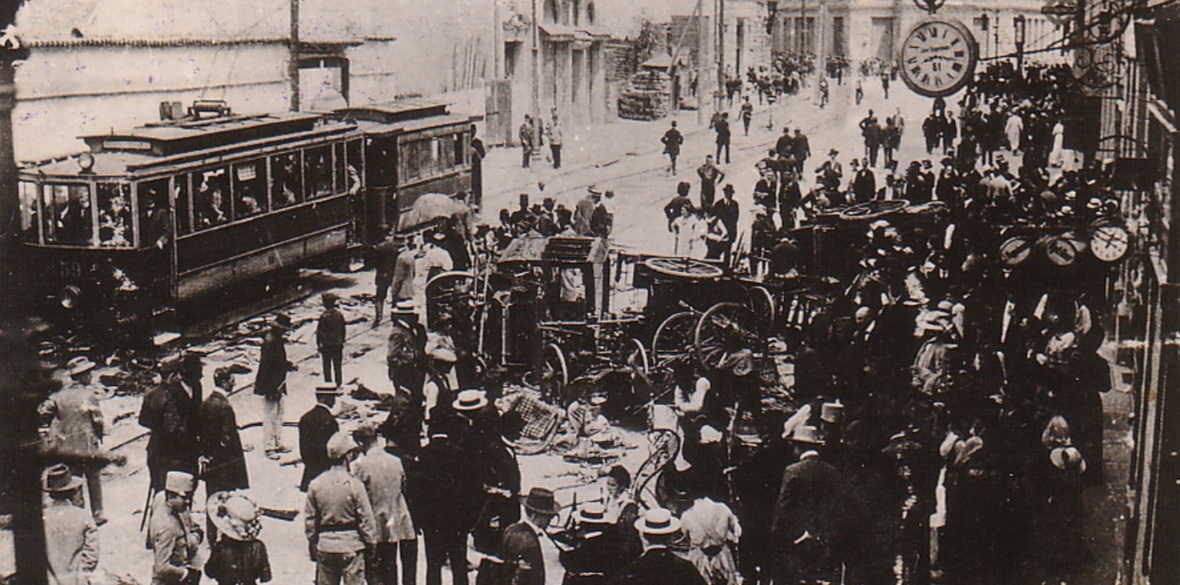This is the last article you can read this month
You can read more article this month
You can read more articles this month
Sorry your limit is up for this month
Reset on:
Please help support the Morning Star by subscribing here
The Habsburgs: The Rise and Fall of a World Power
by Martyn Rady
(Allen Lane, £30)
WHEN I was at school — longer ago than I care to remember — the history I learned was essentially one of kings and queens, followed by British prime ministers and Acts of Parliament.
It was not just a top-down history, it was a top history, full stop.
The underlings, working people who made real history, were hardly mentioned.
I thought that view of history had been discarded with the cane and blackboards, but on reading The Habsburgs by Martyn Rady, professor of central European history at University College, London, I find that I am wrong.
The Habsburgs were the first rulers whose power encompassed the world.
They dominated much of European history from the 10th century onwards and they are, of course, a fascinating subject of study.
I began reading Rady’s book with great hopes of discovering something new about European history.
Yet what I didn’t imagine was that you could cover the sweep of more than 1,000 years in such a reductive and unilluminating manner.
The Habsburg family can be traced back to the late 10th century, when the first king ruled in what today is part of modern Switzerland.
From 1273 onwards, the family developed into the most powerful in Europe.
Right up until the end of the first world war, the dynasty ruled over a loose and continually changing composite state.
It survived despite the fact that the various European nations have been locked in virtually continuous wars right up until today.
The roots of the recent bloody conflict in the former Yugoslavia can be traced back to the Habsburg empire.
A member of the house of Habsburg became head of the Holy Roman Empire in 1273 and from 1452 succeeding family members intermittently retained the title until the empire’s dissolution in 1806.
Despite the fact that nationalist forces throughout the empire often rose up in attempts to throw off the Habsburg yoke, the family retained control in large parts of the original empire right up until the first world war.
The Holy Roman Emperor’s rule was noted for its brutality.
The thirty years war left five million dead — 20 per cent of the population, proportionately worse than in the world wars of the 20th century.
The slaughter of 30,000 in the Lutheran stronghold of Magdeburg led to a new word being coined, “Magdeburgisierung” (“utter destruction.)”
The Habsburgs’ persecution of non-Catholic religions and their suppression of national aspirations became bywords for violence.
At the height of its power, the dynasty’s territorial possessions covered the globe, from Franz Josef Land in the Arctic, to Mexico and Brazil in the west, to outposts in India, the Nicobar Islands and China to the east.
Within Europe, the Habsburg emperor, from his base in Austria and southern Germany, at various times ruled over much of the Balkans, Hungary and Poland to the Baltic Sea, the Low Countries — today’s Netherlands and Belgium — northern Italy, Spain and Portugal.
It was, at its height, the world’s foremost colonial power.
Rady writes, however, as if this inbred and tyrannical family were the only figures on the chess board of history and he gives the reader a chronological litany of successive emperors, kings, archdukes and princesses.
It sends the brain whirling but hardly aids an understanding of the underlying forces behind the evolution of Europe.
Of course, one can’t read a book called The Habsburgs and not expect them to be central.
But the family members who dominated the dynasty surely ruled in a context of other key social and economic forces that largely determined their decision-making.
Rady’s book devotes few words to such forces. One doesn’t have to be a Marxist historian to recognise the centrality of economics in understanding how history has unfolded.
Throughout their rule over much of Europe, the Habsburgs were continually at war with the peoples of their subjugated nations.
In 1678 the first significant revolt by Hungarians against Habsburg rule took place, the war of the Spanish succession (1701-14) involved conflicts with Spain, Italy and France in 1813 and the Habsburgs joined Russia to defeat Napoleon at Leipzig.
The 1848 revolutionary earthquake rocked central Europe, sending tremors through the aristocratic dynasties of every country with its demands for national self-determination and civil rights. Marx and Engels themselves were actively involved in this revolution.
Rady, though, mentions it only in passing and describes the Viennese revolutionaries in dismissive and patronising terms: “Having stormed the building,” he says of the rebels, “students harangued the crowds. Groups of thugs recruited from the suburbs added muscle, turning a noisy demonstration into a riot.
“By nightfall, Vienna was in chaos. Mobs looted shops and workplaces in the suburbs, assaulting the well-to-do…”
He belittles those being recruited in the early 20th century by the Serbian military intelligence chief to challenge Habsburg rule as “grooming young men of a type all too familiar today — puny, sexually frustrated and yearning for a cause that would bring meaning to their lives.”
Is such banal generalisation the way to write history?
He describes the assassination of Crown Prince Franz Ferdinand by the Serbian nationalist Gavrilo Princip — an event that triggered the outbreak of the first world war — as being based on “the same luck as Lee Harvey Oswald fifty years later…”
A rather abstruse comparison and hardly illuminating.
When, in 1888, Crown Prince Rudolf visited Bosnia, formerly part of the Ottoman empire, he said: “Our mission here is to bring Western culture to the Orient.”
So, Rady tells us, “the province was given schools, hospitals, technical colleges, and industry in the form of coal and iron mining,” as if the royal family was distributing its munificence as a gesture of goodwill.
There is no mention of why this came about and what the real intentions behind it were.
Rady contends that the Habsburgs “achieved greatness by luck and by force” but it was arguably more by marriage and by fraud.
In between, he lobs in crumbs of irrelevant and trivial information such as that Princess Stephanie of Belgium invented and patented the hostess trolley. Do we need to know this?
He explains Emperor Franz Joseph’s militarism as anchored in his childhood: “As a boy, Franz Joseph had delighted in his toy castle with its miniature soldiers and cannons, and he remained all his life passionate about the army, soldiers’ uniforms and parades.”
The amateur child psychologist here seems to replace the historian.
“The achievements of bureaucratic absolutism were massive,” Rady concludes.
“There were new institutions of science, regulations on safety in the mines and in the workplace, a penny stamp postal service, new roads, telegraphs and railways.”
The curious reader will surely ask: “Were all these things simply decreed by the emperor? Was there no pressure from below, no strikes, uprisings?”
He reiterates GK Chesterton’s simplistic, if picturesque, description of British working people’s expression of outrage and anger when the Austrian General Julius Jacob von Haynau — the man responsible for the brutal suppression of the 1849 Hungarian national uprising and known as the Hyena of Brescia and Hangman of Arad — visited London in 1864: “He was set upon by draymen of Barclay and Perkins brewery, pelted with dung and chased down Borough High Street.”
Was that all there was to it?
A deeper understanding of the Habsburgs’ dynastic rule might provide a better understanding of more recent developments in that region, not least the roots of the fratricidal wars in the former Yugoslavia, as well as the emergence of rabid Hungarian and Polish nationalism.










